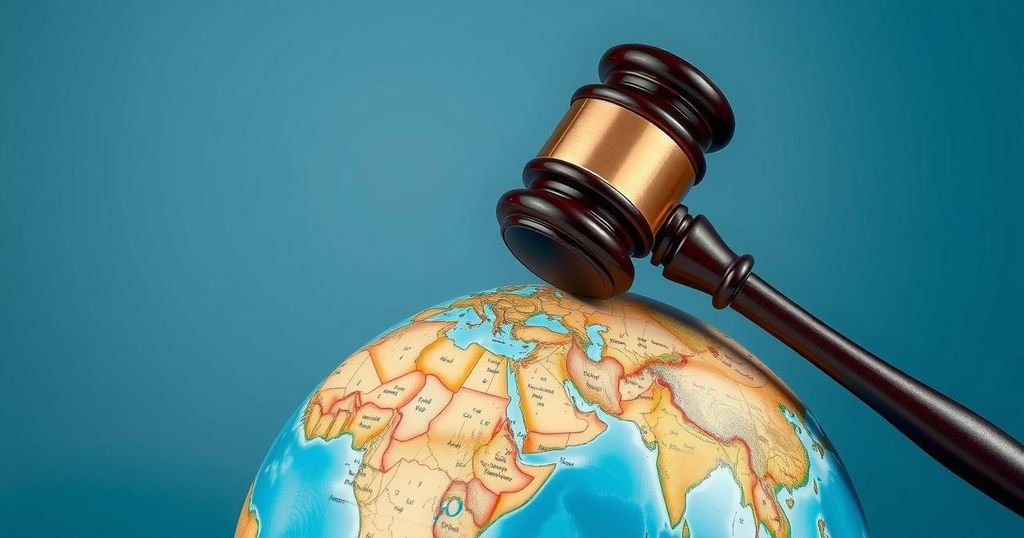Sudan Accuses UAE of Complicity in Genocide at International Court
Sudan has filed a case against the UAE at the International Court of Justice, alleging complicity in genocide against the Masalit people by supporting the Rapid Support Forces. The UAE denies the allegations and calls the case a publicity stunt. The conflict has led to tens of thousands of deaths and massive displacements across Sudan, with the Masalit people suffering severe violations.
Sudan has initiated legal proceedings against the United Arab Emirates at the International Court of Justice (ICJ), claiming that the UAE has violated the Genocide Convention by providing direct support to the Rapid Support Forces (RSF), which are implicated in the ongoing conflict in Sudan. This case specifically addresses allegations of genocide and various human rights violations against the Masalit people in Darfur, including murder, theft, and rape.
The ICJ has reviewed Sudan’s claims, which assert that the UAE has been complicit in genocide against the Masalit through financial, political, and military assistance to the RSF. In response to the lawsuit, the UAE characterized it as a “cynical publicity stunt” and intends to pursue an immediate dismissal of the case.
The conflict involving the RSF and the Sudanese army has resulted in significant loss of life, displacing over 12 million people, and has contributed to a famine crisis in certain regions. The fighting has been especially intense in Khartoum and Darfur, where the RSF, primarily composed of members from nomadic Arab tribes, has violently targeted the sedentary non-Arab Masalit.
Despite the RSF’s denial of any wrongdoing towards civilians, reports indicate severe violations against the population, including recent assaults on the Zamzam refugee camp. The United States has previously accused the RSF of committing acts of genocide in Darfur.
Sudan has urged the ICJ to impose provisional measures requiring the UAE to pay reparations and prevent any arms or support from being directed toward armed groups engaged in actions against the Masalit under the Genocide Convention. While ICJ rulings are legally binding, they lack enforcement capability; previous rulings have seen no compliance from countries like Russia and Israel amidst their own conflicts.
In summary, Sudan’s legal actions against the UAE at the International Court of Justice highlight grave accusations of complicity in genocide facilitated by support for the Rapid Support Forces. The ongoing conflict in Sudan has significantly affected millions, and the legal proceedings aim to address accountability and reparations. However, the practical impact of ICJ rulings remains uncertain due to the court’s limited enforcement authority.
Original Source: www.aljazeera.com




Post Comment